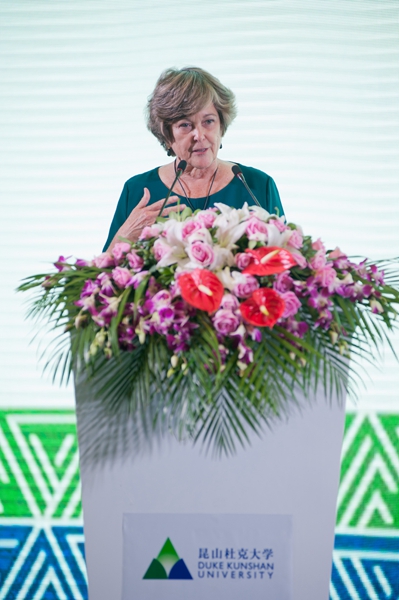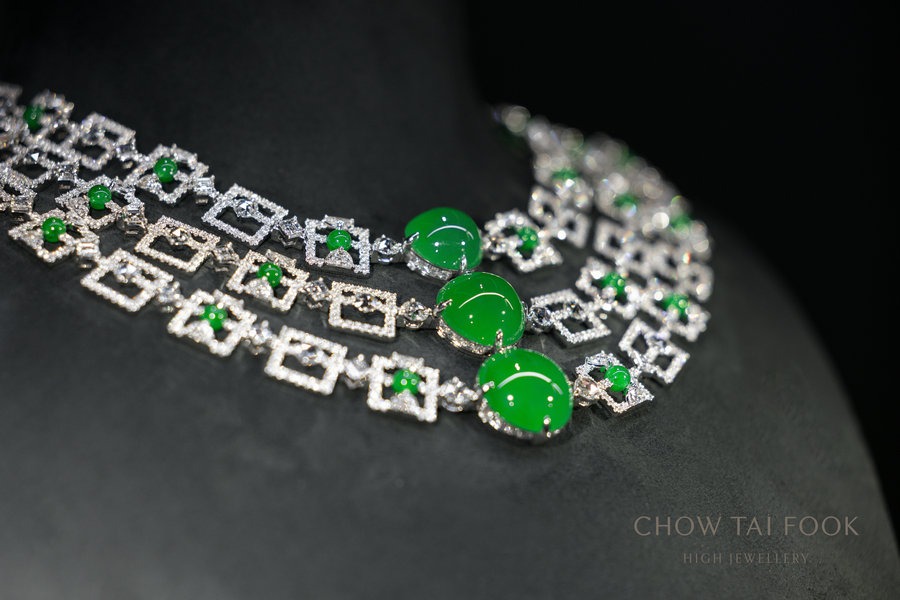Getting to know you


"If I wanted to find out how a commune worked, what is a barefoot doctor and how was medicine and health care provided in villages, I had to talk to Chinese," says Lampton, who first visited China in October 1976, a month after Chairman Mao Zedong died.
"But where could I talk to them? Until 1979, the answer was either in Taiwan, where people left the mainland in 1949 and didn't really know much about the situation there, or Hong Kong, where its Cantonese-speaking population were mostly from the southernmost Chinese provinces of Guangdong and Fujian. In either place it's impossible to see China in its diversity and authenticity.
"So when China finally opened, people jumped at the opportunity."
While early Chinese students to the US were overwhelmingly focused on science and technology, their counterparts in China mainly pursued study in areas of the liberal arts-history and literature, anthropology and sociology for example, he says.
The phenomenon had huge implications as these people "all went into a field to try to shape the future of US-China relations".
One place to do so is inside classrooms. Both Bell and Gold became professors at the University of California, lecturing to US students as well as Chinese students who, interested in another perspective, have increasingly got themselves enrolled in Asian study programs over the past decade. Gold, chair of the university's Center for Chinese Studies, was also the founding director of the Berkeley China Initiative.
Between 2011 and 2013, while representing the University of California in China at the UC Center at Peking University, Thomson organized an informal group of directors of American study abroad programs in China, using the mailing list he first started to put together in 1979 when he was responsible for providing information to US students and educators who were interested.
According to Thomson, who studied Chinese in the mid-60s, the biggest governmental support to foreign-language study, especially the study of Russian and Chinese, came after the Soviet Union launched the first artificial satellite, Sputnik 1, in 1957.
"Congress passed a law, the National Defense Education Act, which provided funding to the National Defense Foreign Language Fellowships, for the study of our enemies," he says.
Lampton, a student demonstrator from the Vietnam War era, offered his own reflection.
"During the Cold War there were two big wars involving the United States-the Korean and the Vietnam War-and both had to do as much with China as us not understanding either China or the rest of Asia. You either believe knowledge is good or you don't. I happen to think that in general knowledge is a good thing. Trying to impede the flow of that knowledge is not in our long-term interest."
Hawke, the son of a "cold warrior", to use his own words, believes that his ability to go to China was "an outcome of the evolution of that view of China as the adversary".
"It was really the desire to raise my kids in China to be bilingual and bicultural that kept me there for 40 years," says Hawke, whose wife is Chinese.
In 1980 Wichmann found her picture "on the cover of everything", after she performed jingju in Nanjing, the very first foreigner to do so on a stage of the People's Republic of China. Cast in the lead role of Yang Yuhuan, an 8th-century royal concubine known for her beauty and tragic love, Wichmann was seen in an old picture in elaborate headdresses, heavy with sparkling jewels and quivering faux pearls. Locks of hair were made to cling to her forehead and framed her deeply rouged young face. Under the dim backstage light she peered intently into the desk mirror, transfixed and transported by her own reflection.
Since then Wichmann, now a theater professor at the University of Hawaii, has translated and directed nine jingju performances, in English.
"Following the same vowels and lyrical structures allows me to retain the original flavor of the art and to pass on to my students the experience I had learning from Chinese artists."
Divergent paths though they may have followed, Wichmann shared a lot with Gold, Hawke and all the others of their groups. For one, their talks were interspersed with Chinese terms so typical of the era. And they seem to have locked up every detail in their mind's safe box: while two figures that Gold strongly retains are 55 and 93, the numbers of the buses that could take him to Fudan, Hawke recalls 25 and 26, the numbers of the buildings that US students moved into at Peking University.
Hawke also remembers stripping the strings of string beans at the university canteen, which he did visit when he was not eating hotpot.
"When we arrived for a meal there would be a pile of unstrung beans in the center of the table. Whoever was eating at that table had to string all of the beans before they could line up to get their food."
Looking back, Lampton says:"Some people in the United States now criticize our generation, saying that we thought China over time would evolve politically, and that China hasn't and therefore we failed. I think that's wrong on almost all fronts, for China itself has evolved. China is very different from the China I went to in 1976."
"My generation is satisfied with what it learned and contributed."
About 3 pm on Feb 23, 1979, the plane carrying the Beijing Eight touched down at a snow-blanketed Beijing Capital Airport. Together with the Chinese hosts, Thomson was there to welcome them.
Before leaving the airport, the students took a group picture in front of their bus. Standing on the far left of the first row is Allee, with long hair that would certainly have attracted attention in those days. Hawke is at the back, sporting a cowboy hat and a mustache, ready to explore his new frontier. Front center in red trousers is Bell, holding her down jacket and a mossy-green school bag not unlike those carried in those days by her young Chinese counterparts. At the back on her right is Gold, with a broad smile, beams of afternoon sunlight reflected on his glasses. Spring Festival, during which the Chinese mark the coming of Spring and a new year, had been celebrated not long before.
"To learn about China and to facilitate that learning process for others-that's part of what we've committed our lives to doing,"Gold says.
"We saw ourselves as pioneers."




































